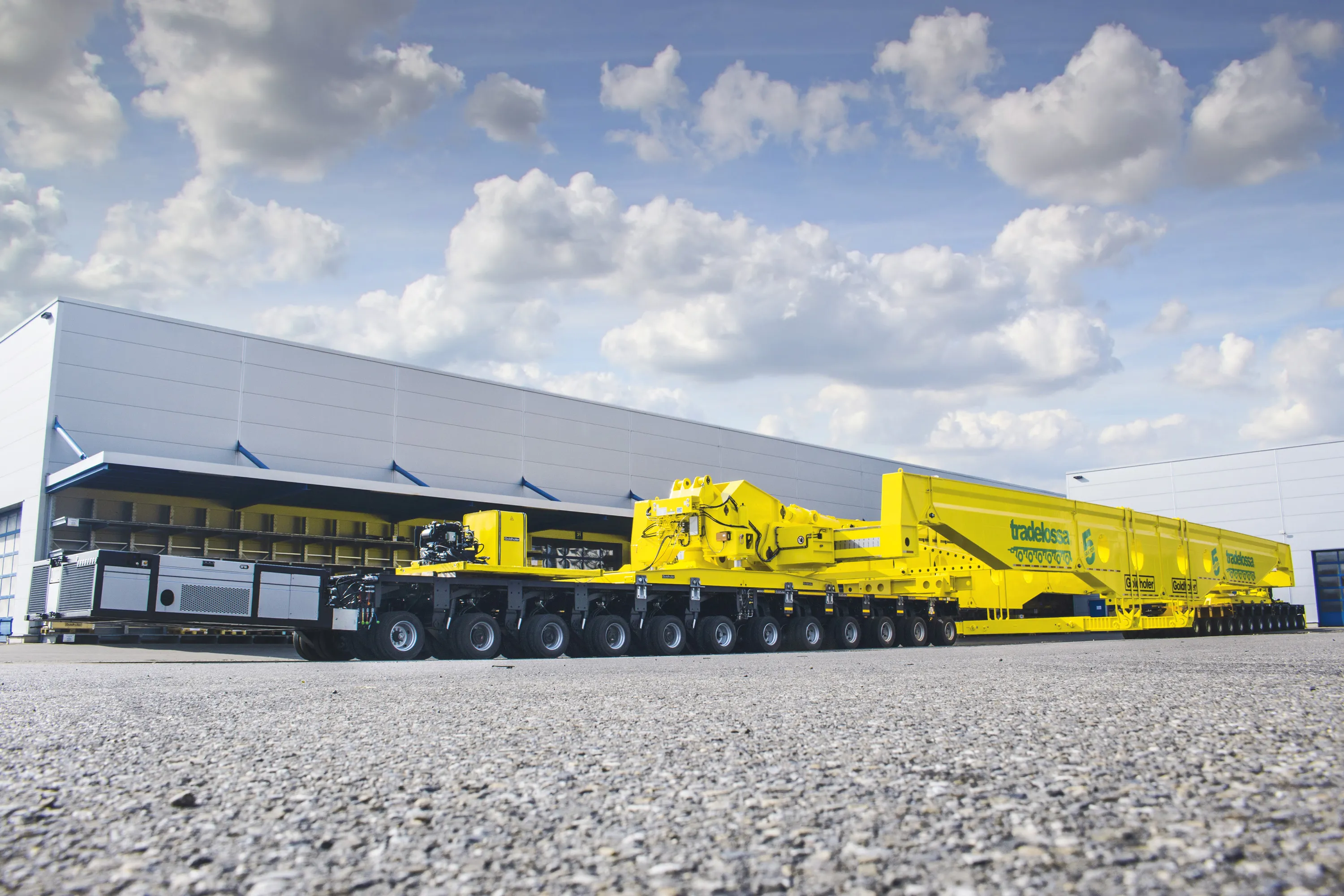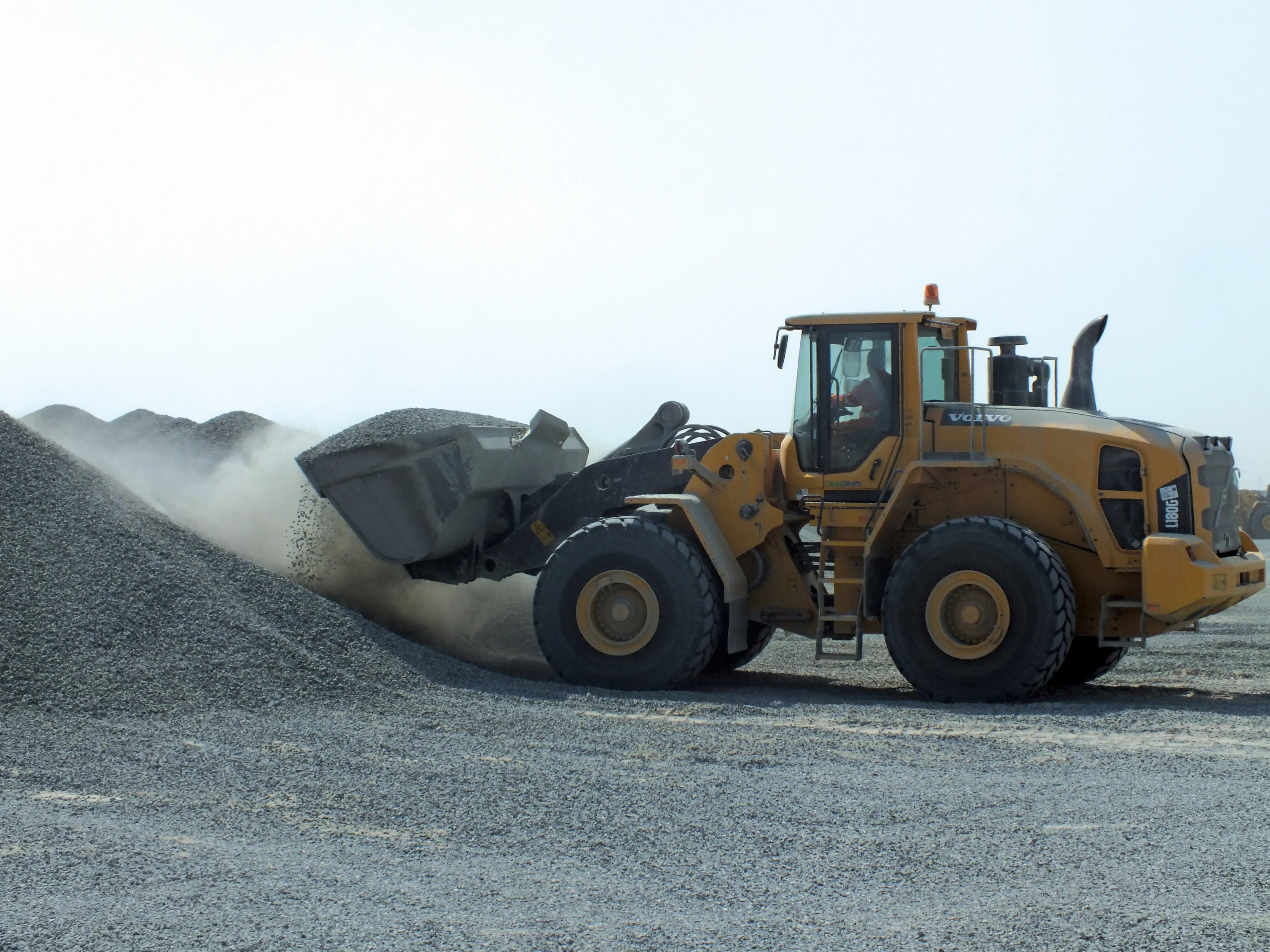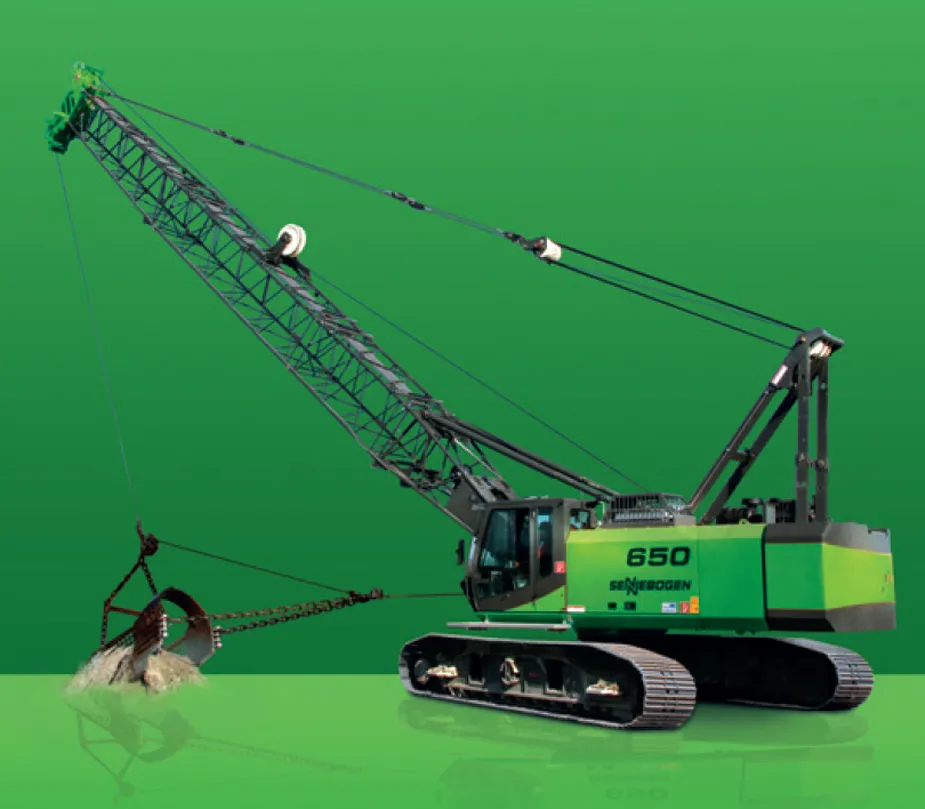
The company says that it offers solutions for the heavy haul and abnormal load transportation industry and handles national and international logistics operations in North and South America.
For many years the company has been purchasing specialist heavy haulage equipment from the German firm,
The two companies have a joint anniversary to celebrate. Rafael de los Santos, managing director at Tradelossa explained, "Tradelossa was the first Mexican company to purchase and operate Goldhofer equipment. This year marks the 20th anniversary of a trustful relationship between the two companies."
As an addition to its existing fleet of over 150 Goldhofer axle lines, Tradelossa has now ordered a Faktor 5 high girder bridge, christened Doña Pilar, in memory of the company's co-founder. It is being shipped to Mexico in April 2018. The designation, Faktor 5, is a reference to the impressive payload to deadweight ratio of 5:1; the 100tonne bridge makes light work of cargo weighing up to 500tonnes. The robust design means it is also suitable for use in challenging settings. In addition, the design has a focus on modularity, which gives the unit the versatility to handle a wide range of transport operations. Flexible adjustment of length and width means the high girder bridge can take loads that are 3 – 6.75m wide and 11 – 17m long.
Tradelossa has acquired this unit to increase its transport capacities so as to cope with continually increasing demand for its services and avoid bottlenecks by operating its two high girder bridges simultaneously.







